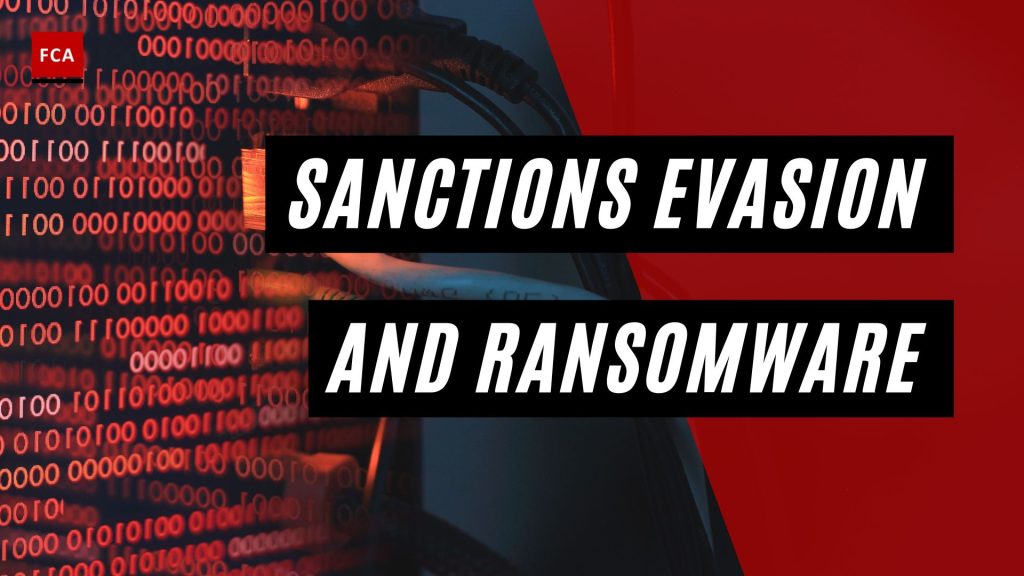Sanctions evasion and ransomware have become increasingly interconnected as cybercriminals exploit vulnerabilities in global financial systems to facilitate illicit transactions and extort victims for financial gain.
The Financial Action Task Force (FATF) recognizes the potential misuse of virtual assets (VAs) for sanctions evasion. While the occurrence of large-scale sanctions evasion using VAs is currently limited due to liquidity constraints, the evolving nature of this threat necessitates proactive measures. In response, numerous FATF jurisdictions have taken recent actions to affirm that targeted financial sanction (TFS) requirements apply to VAs and virtual asset service providers (VASPs).

Sanctions Evasion and Ransomware: Unveiling Dual Threats
Engaging in consultations with industry stakeholders, FATF has emphasized the significance of public sector outreach and training. Additionally, the deployment of tools and techniques such as GeoIP monitoring and blocking, as well as pattern analysis utilizing blockchain analytics, can assist in sanction screening for VA transactions. Urgent implementation of FATF’s Travel Rule is imperative to support the effective identification of counterparties and robust sanction screening processes.
Turning to the alarming surge in ransomware attacks, FATF acknowledges the criminal exploitation of VAs for the receipt and laundering of illicit proceeds. Criminals often rely on a small group of non-compliant or complicit VASPs for money laundering, followed by utilizing compliant VASPs to convert the funds into fiat currency. Notably, ransomware cybercriminals increasingly employ mixers or tumblers and privacy coins to facilitate the receipt and laundering of illicit proceeds, although Bitcoin remains the most commonly used virtual asset for this purpose.
In combating these threats, recent consultations with both jurisdictions and industry stakeholders have underscored the potential of blockchain analytics to trace money laundering associated with ransomware. The utilization of blockchain tools has proved valuable in successful enforcement cases, targeted financial sanctions, and other measures aimed at disrupting ransomware-financing operations.
Nevertheless, challenges persist, particularly regarding privacy coins, chain-hopping via non-compliant VASPs, and unhosted wallets. To effectively address these threats, it is crucial for jurisdictions and the private sector to implement FATF’s Standards on VAs and VASPs, including the comprehensive adoption of the Travel Rule. By doing so, the private sector will be better equipped to detect illicit actors and identify suspicious transactions.

Final Thoughts
The evolving risks of sanctions evasion and ransomware pose significant challenges that require concerted efforts from both regulatory bodies and industry stakeholders. The FATF’s recognition of these dual threats has prompted actions aimed at mitigating their impact. Collaboration between the public and private sectors, along with the implementation of FATF’s Standards on virtual assets and virtual asset service providers, is crucial in detecting and deterring illicit activities.
By leveraging tools such as blockchain analytics and adhering to measures like the Travel Rule, jurisdictions and the private sector can strengthen their ability to combat sanctions evasion and disrupt ransomware-financing operations. It is through these collective efforts that a safer and more secure environment for virtual asset transactions can be achieved.








